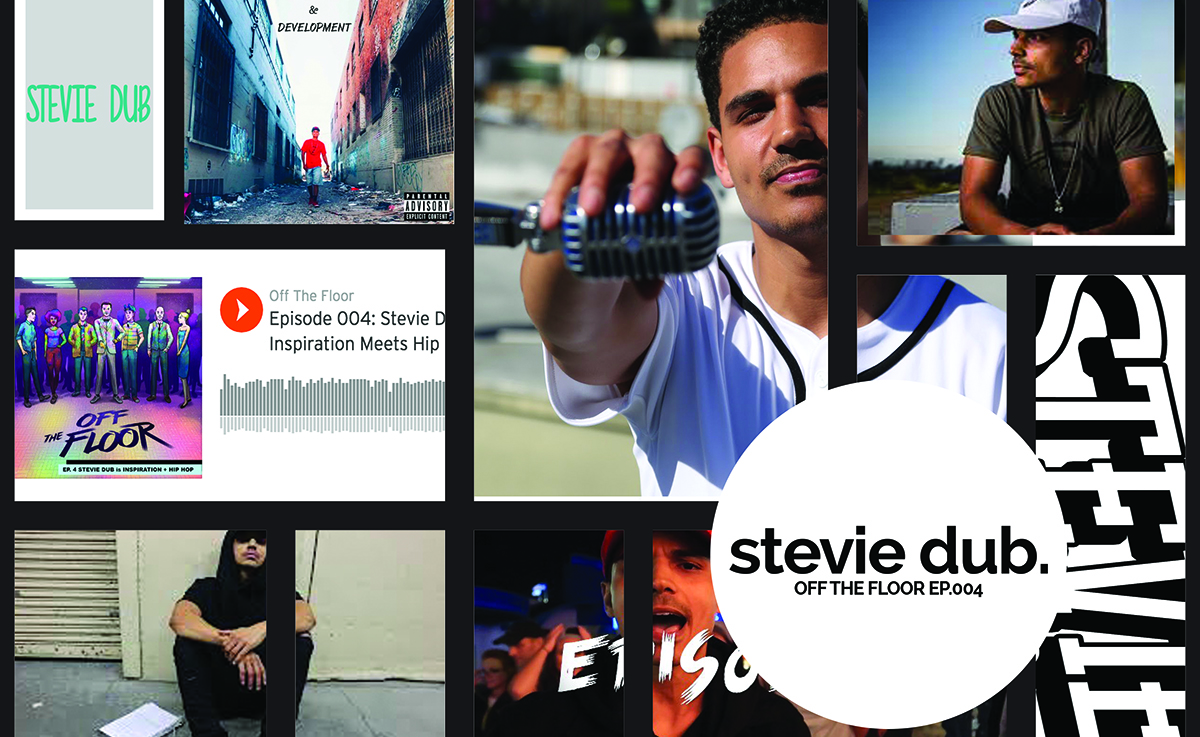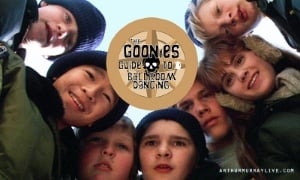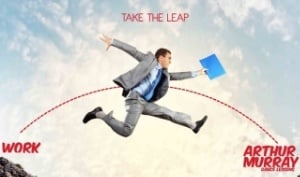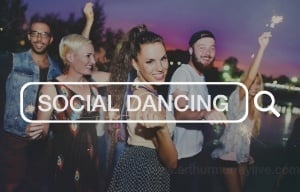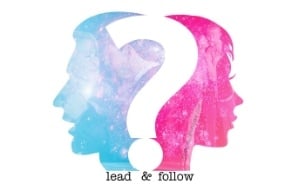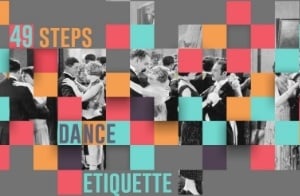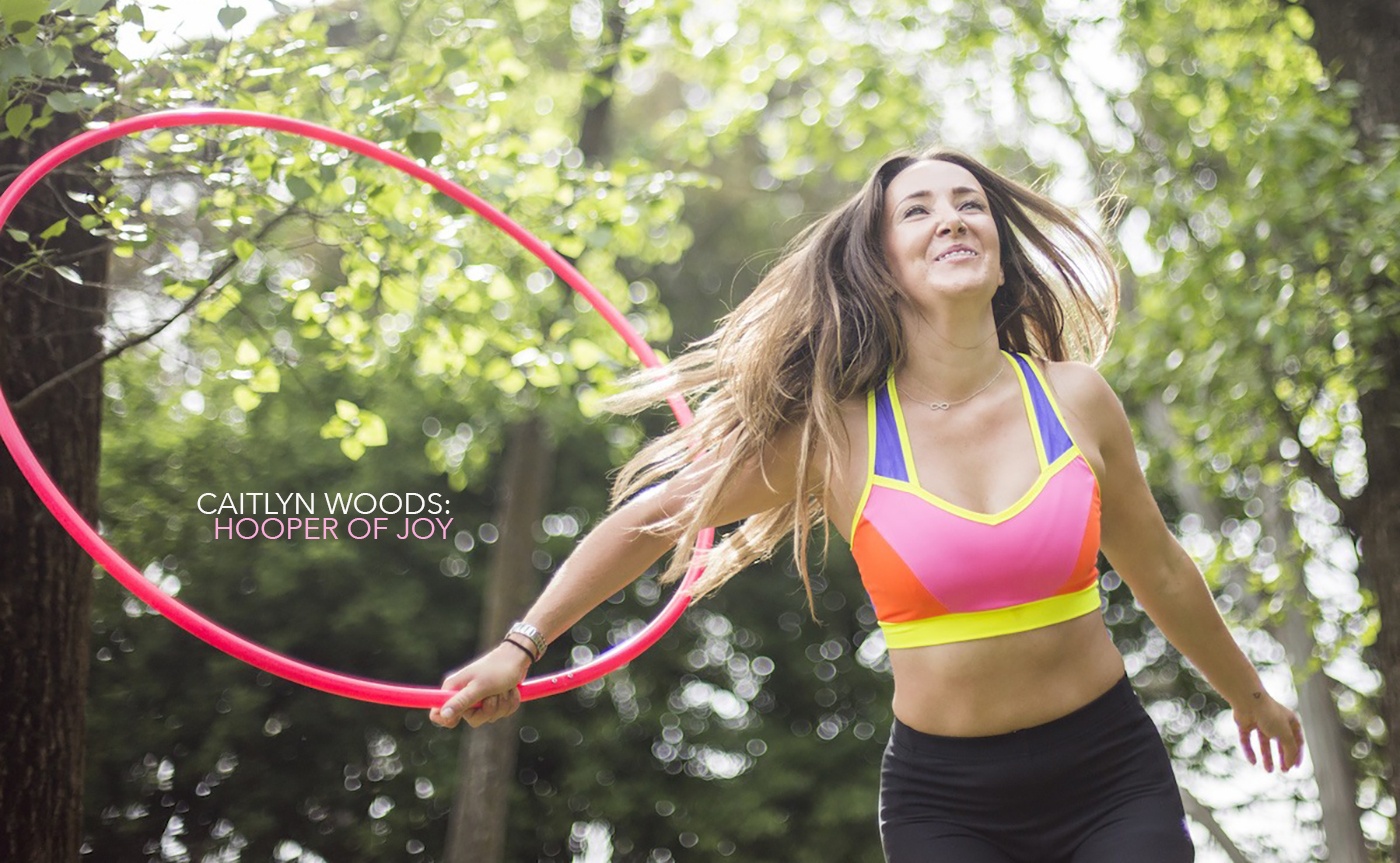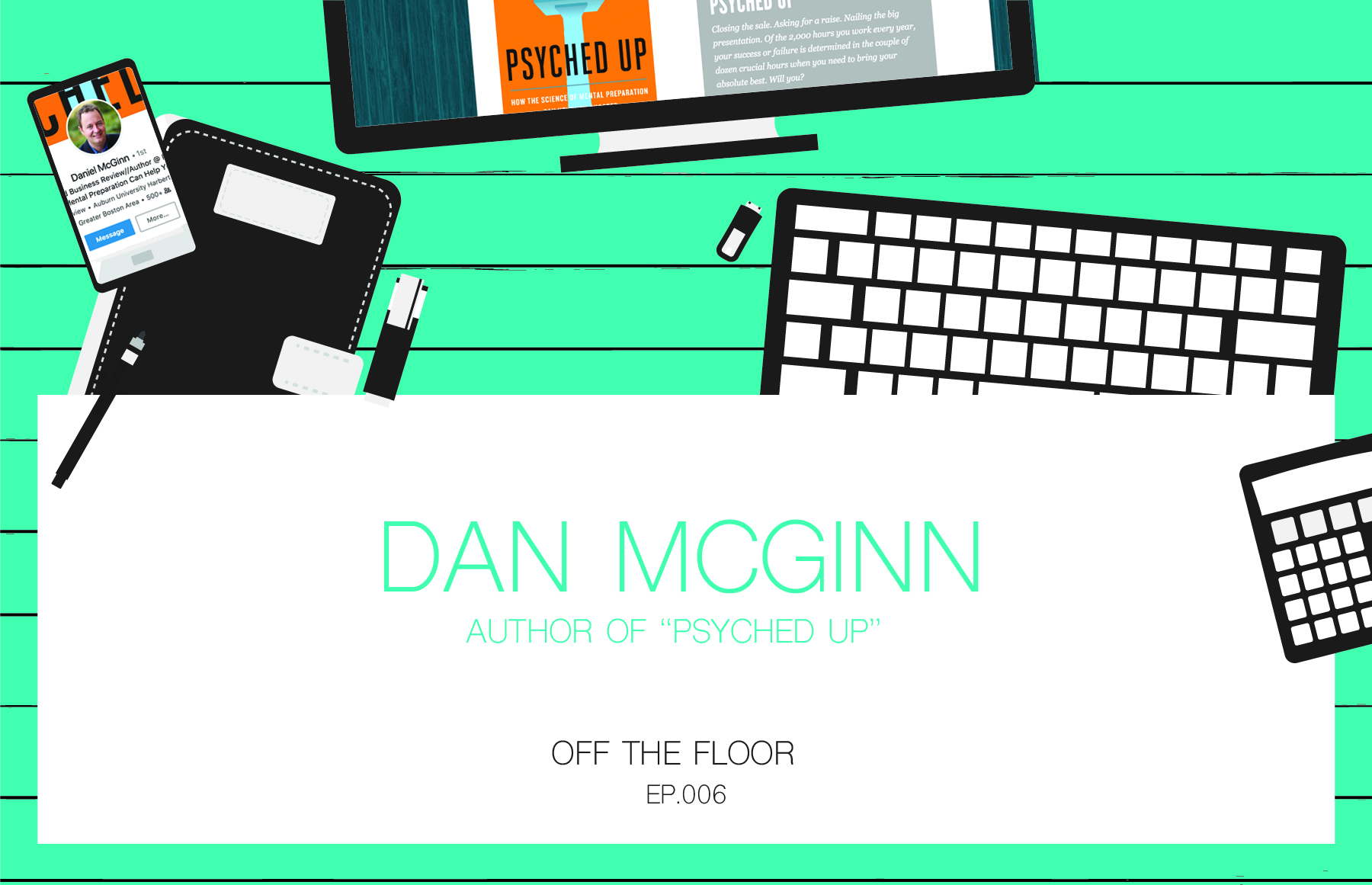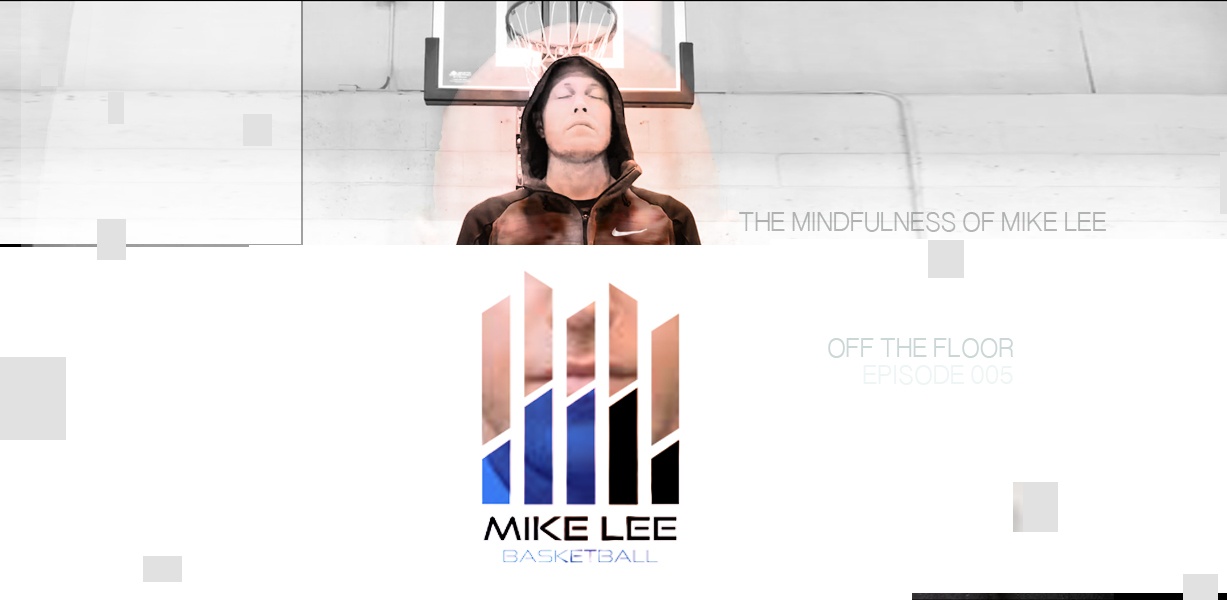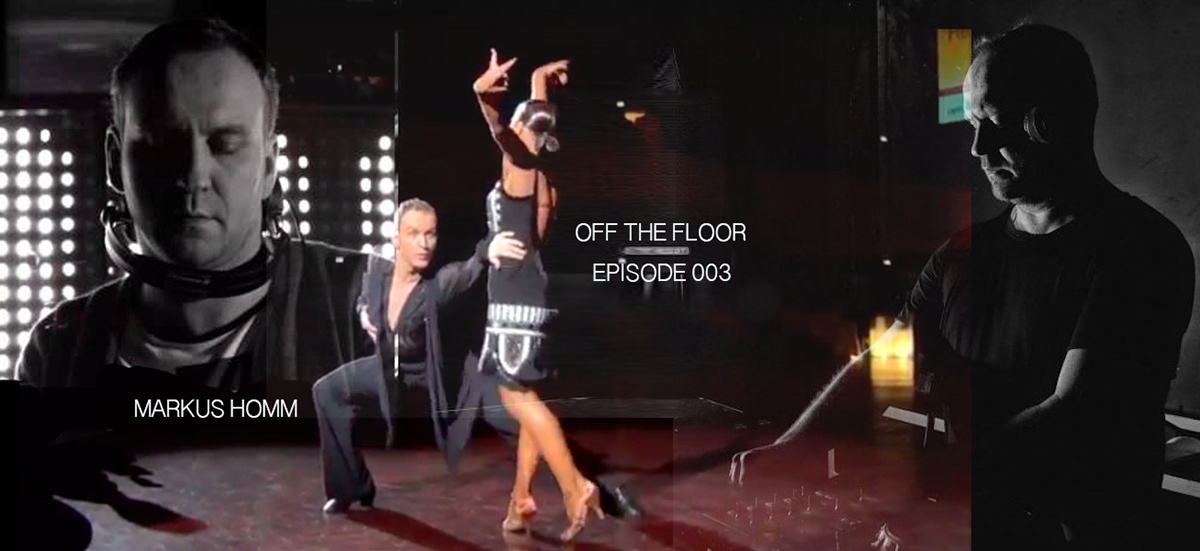Off the Floor Episode 004: Stevie Dub
What is "Off the Floor"?
This show is designed to be a bridge from the dance world to the outside world. There are stories, motives, challenges, and triumphs all around us, on or off the dance floor, and this podcast is here to share those stories.
Off The Floor Episode 004: Transcript

CL: Chris Lynam
SD: Stevie Dub
CL: First, just tell me a little bit about what you're trying to do with music and how things are going for you.
SD: I started making music back in 2008, so it's been close to 10 years now. I originally got into it cause I needed to release these things that were going on in my life. I was dealing with a lot of negativity at the time. My mother was going through a big situation in her life where the guy who she was with ended up passing away, right after they got married. So my mom turned into this huge alcoholic for awhile and things were around the house were really bad, so I needed a way to release all the frustration and negativity and anger that was going on around me, so I started to write music.
Then, once I graduated, I ended up moving to California 'cause that's where my dad lived. My mom and dad are separated. But once I got out here I was exposed to the hip hop culture and I got heavily involved in going out and networking and meeting people. This basically the cliff notes, there's a lot more detail to all this, but basically through a mix of all that I end up doing a show in LA and I got an opportunity to meet a couple label executives. They were like "Yo, you're really talented. If you want to take this thing to the next level you should get out to LA so we can help you out." That was back in 2014 actually.
Originally I grew up in Wisconsin, and then I moved in 2009 - after I graduated - to the LA area. I was living in San Bernadino until about 2014, doing a bunch of shows, local shows, getting my name out there, did a show in LA, moved to LA in 2014 and I've been out here ever since. Overall I've just been blessed to be surrounded by a lot of like minded, inspirational, individuals - such as my manager and just other people that are part of my team - that have been able to help out a tremendous amount.
We started a clothing line, which is more of a movement than just a clothing line. It's called "7 Percenter" which represents the 7%, this small amount, of people who have a goal and a dream and inspire others along the way, such as yourself, me, and other people we talk to online. Overall we wanted to do something that was positive, and that wasn't necessarily centered around hip hop. So we started 7 Percenter 2 years ago, and we're connected to a non-profit organization so we can give back to schools with scholarships and money for repairs or more equipment, PE uniforms, whatever the case may be.
Yeah, it's kind of all over the place. I've been doing a lot of stuff. From hip hop to non-profit, giving back to the homeless. I do motivational speaking engagements in South-Central LA. I stay busy.
CL: Tell me about that one show in LA, or your first show, what was it like going from being a writer to going on stage?
SD: I'll never forget it. It was at Universal City walk in Hollywood, by Universal Studios. I did that show, and afterwards I got such great feedback. I got feedback from people who actually have a name, and have worked with bigger names in the industry.
The guy I'm talking about is Steve Lobel. He currently manages Solja Boy, he used to manage Shawn Kingston, he managed Scott Storch, Bone Thugs 'N' Harmony - he's been managing them since the early 90's. For me, to be a big fan of all those acts, I was just like "Damn, this is crazy." Not only did he put the time to put this show together, but then pulled me, of all people, aside and had his assistant with him. And he said, "Look, I need you two to exchange information right now and I need to meet with you in the next week. It absolutely needs to happen." I knew that it was a big deal when I first signed up to do the show because I looked up everybody, researched: who was throwing the show, their history. I didn't necessarily know who he was at the time, but as I did my research I was like "Damn, this is big," so I knew I had the opportunity to really stem off of that and go do greater things. I'm at where I am now in my life because of that one show, so that was the one for sure.
CL: What do you feel like you did to prep for that show, for that opportunity?
SD: Whether it was the day before, or weeks, or months, it's just consistently doing shows and always going out there and not being afraid to be a social butterfly. I knew there was gonna a time and place where I'm out of my comfort zone performing, and I have to figure out a way to get in to my comfort zone and get around these people that have more followers, or they're a bigger public figure, than me or what I'm used to. I have to be able to carry myself the proper way so these dudes aren't like "Damn, this dude can't even contain his excitement."
Just me going out and being social. When I was going to school, I would always go up to random people and challenge myself to hand out at least one CD a day to somebody I didn't know. So whether it's going to school handing out CDs, just going up to people and recording myself being like, "Hey, do you mind if I rap for you for a minute?," freestyling at Guitar Center with my friends - we used to mess with the equipment and make live beats and have fun - overall it's just me working. I feel like that's the process what really stemmed me to get ready for the opportunity that was given to me. I'm just grateful for that.
CL: What do you feel like is the biggest advantage of being an artist like yourself in this digital era?
SD: I would definitely say the accessibility of social media, and being able to be able to do exactly what we're doing now. If this was the 90's, I would have to be where you're at for you to hear my music, or be grinding in your city, or you walk to work and I'm like "Hey, I'm here for a show, here's my CD. Check it out." You could bump it and do whatever, and when I'd be back in town you might come to my show.
Now I've been meeting so many people off the internet: YouTube, Twitter, even MySpace when that was out - I was heavy on MySpace, SnapChat, Skype. I'm doing all those things. It's the Internet Era and I can definitely say that out of everything, social media in general is huge. As well as all the other digital platforms: Spotify, Tidal, Soundcloud, Google Play. The list just goes on.
We are now definitely at an advantage, which is part of the reason why the amount of "celebrities" and "rappers" are through the roof nowadays. It's because of our cell phones, and social media in general.
CL: Would you classify yourself as a musical artist that's very motivating or as a motivational speaker that's just got great lyrics?
SD: I would say a music artist that's motivating. I feel like my music was able to motivate me, and help me figure out who I am, inside. Through the years of me growing up, becoming a man, going to school, being in and out of relationships, and the things I've been with in my life, I feel like my music definitely helped me branch out. If it wasn't for my music I wouldn't be able to do motivational speeches. Music is a form of public speaking, 'cause I am in front of a crowd.
My words have changed and shifted as I've gotten older, 'cause I understand the impact of my words. I'm changing and making sure that my words have substance, and I feel like I owe that to my music platform. I'm definitely a musical person that's motivational as opposed to a motivated person that's musical.
CL: Is there a speaker, or a book, that you feel like put a spotlight on your inspirational avenue for your marketing? When did that start to really take hold for you?
SD: In terms of the marketing, there's a few books for sure. Tony Robbins, I read a lot of his books and listen to a lot of his podcasts. Gary V is probably #1 in terms of really stepping my game up just because he pushes the envelope. I would say around this time last year I really started getting into listening to podcasts more: Les Brown, Tony Robbins, Gary V, Darren Hardy has this book called The Compound Effect that really changed my whole entire life. As well as Jab, Jab, Jab, Right Hook and Emotional Intelligence 2.0, all my books are right here behind my laptop.
I just knew I needed to get my mental stability right, and I needed to make sure I was able to consistently make music, and work, and do all these things all these things at once. It was becoming a lot for me to balance, and I was kind of off my rocker for a little bit. Once I dabbled into Tony's podcast and Les Brown's, listening to these things, I was able to be like "Okay, this is the motivation I need as a person to keep me going."
But from a marketing and strategic standpoint, just getting my music out there, Gary V is definitely the one that I listen to that was like "Damn, this is what I need to be doing." I have the internet here at my hands, I've got to utilize it by putting out more content. Not only that, I've had friends that are big YouTubers that I've watched grow from here to there. It took them time, but just watching them motivated me as well. It's just been a bunch of different things over the course of the last year and a half or so that have helped me get more into full speed. Kicking it into top notch gear in order to pump out all this content that I've been putting out all summer, and next year is going to be wild. I consider next year starting right now actually, 'cause I'm not slowing down any time soon.
CL: Okay, real quick: what was the first job that you ever had?
SD: I used to mop, and sweep, and take out the trash at a bar in this small town. It was only on Sundays too. I think I was like 15 or 14, but I would go to this bar that was in this little town that I grew up in, and they would pay me maybe $50 to $75 a day to go there to take out all this trash and do all this stuff. It was exciting, it was fun.
CL: Wasn't Prince also a janitor?
SD: Yeah, at the studio he would record at. He would sweep, clean it, do whatever he would do, and then record after hours. Pretty wild.
CL: Who was the best teacher you ever had? And did they say something to you, or was it something they did academically or something more personal?
SD: My English teacher my senior year in high school, her name's Mrs. Erdman, Kris Erdman, and I still talk to her on the regular to this day. I took a public speaking class my senior year of high school and this was before me and my friend Ross really got into writing music and recording music and bought all the equipment. That was the first taste that I had of getting out of my comfort zone and having to get in front of people and really speak to them. Believe it or not, I wasn't always the most social guy. I was very to myself when I was in high school before I started in music. I just didn't want to get up in front of people in talk. I was very shy. She helped me branch out. Then, as time went on, she was like "Wow, when you get into your comfort zone when you're up there, you do a great job. It's great that you're doing music." She would always encourage me and my friend Ross to keep doing our music, and she would come to our shows. She'd only stay for like 30 minutes, but still. It wasn't really her crowd, and the loud music was probably a little too much for her older ears. But yeah, Mrs. Erdman definitely. If she hears this ever: thank you very much, I appreciate you.
CL: I was listening to the track that you have pinned to the top, "Unforgettable Remix." Has anybody talk to you about the kind of dance that would go with that? It's got a Bachata, sort of Latin-dance, vibe to it. Was that the intent or was that like a cool surprise? How'd you go into that one?
SD: I'm working on a duo-EP, a collaborative EP, with Heartbreak, who's the female artist that's on the record. We remixed that French Montana and Swae Lee have, it's actually their record, and there's this huge dance for it that's out on the internet. Go and look up the original "Unforgettable." It was popping when we did it a couple months ago, so we were like "Let's jump on this. It's got our flavor, our sound."
This is the story real quick: I went over to her place where we've been recording, we do a lot of our tracking just over at her house, and we were talking about putting out original content. We were still searching and searching and searching look for beats, and she was like "Y'know, a lot of the things that I've gotten the most listens on were me doing covers or remixes of popular records." I brought up the Spotify app, and I was like "Let's go on the global top 100 and go through 1 to 5, and pick out out which one of these songs we like the most." Neither one of us had ever heard any of the songs. First time we listened to "Unforgettable" was when we decided to remix it. We sat there and we listened to it 3 times, all the way through - thoroughly, shut it off, downloaded the instrumental, and came up with the chorus and the song like right afterwards. It had that vibe to it where we were like "Okay, this is the one." Other ones that were on there, that were popular on the time, were like the "Mask Off" song by Future, and then a Drake song of course, and then some Adele song, and a Taylor Swift, so we were like "Yo, this is the one right here."
On my page it has about 1,000 views, but, if you go over to her YouTube channel, she has about 60,000 organic views on our video. Then on my Facebook channel, I have between 15,000 and 20,000 views on the music video, so it's doing well. I'm very happy. Speaking to that: me and her have a lot of music that's unreleased that people haven't heard, and it's incredible. I'm very very excited for people to hear the music that me and her have coming out. We have at least 10 unreleased tracks nobody has heard that we are ready to release once we get all these music videos shot.
CL: Did you guys connect via social media? How'd you guys form that partnership?
SD: She had a roommate at the time, his name is JT Harker, who's also a musician. Me and him have a song together, and I'll explain that to you in a second. Those two were roommates, and at some event my manager met JT and some other girl named Brittaney Boston. They were all having a party one night when I was still living in San Bernadino, which is about an hour and 30 minutes away from LA.
I first started working with my manager after that big show I told you about earlier, and he called me up and was like "Hey, this weekend this guy named JT invited me. He's having a house party and you should come." I went down there and that's where I met Heartbreak, I met JT, I met my friend Brittaney Boston who's now working for Epic Records. JT is in a country band that's doing phenomenal. Heartbreak is now a recording artist who's doing great. She's also a basketball player in "Basketball Beauties" league. We've known each other for years, but me and her would always connect. I would come out, we would do singles every once in awhile, and then I would come out to performances or shows that she had and vice versa. We never had the opportunity to sit down and be like "Yo, let's work on a project together."
It all kind of organically came together after us knowing each other for about 3 years. I'm happy that we waited, cause the music the music that we made now is incredible. It's unforgettable actually. [laughs]
CL: What would you say is something that you have to do consciously when you're working collaboratively with an artist versus something you'd do solo?
SD: You have to be open to new ideas, concepts, cadences, flows, and melodies. It can't all be you. It has to be a selfless-type deal when you guys are working together. We have very good chemistry - just as friends. That helps out a tremendous amount, but we've had times where I'll to a song or a chorus and I had this idea, and I wrote it down, and she'll listen to it and won't necessarily feel it. I'll be like "Cool, let's go back to the drawing board. What ideas can you put to it?" You just can't be afraid; sometimes you may butt heads or you may disagree, but that's okay. You just gotta be open minded. That's my best advice to anyone doing anything in the collaborative world. It doesn't matter if you're doing hip hop or you're writing a book together, or whatever it is that you're doing. You have to keep an open mind, for sure.
CL: What can we expect from Stevie Dub going into 2018?
SD: A lot of content. More motivational content. I don't know if you got a chance to see it or not, but I posted a video the other day called "Why Not?" that basically talks about why people don't support each other, or repost, comment, and like each other's content more. I'm going to be putting a lot more motivational videos. I'm going to consistently be putting out the "No Beat, Just Heat" series which is a freestyle series where I rap without a beat or anything, on camera, every Friday. Heartbreak and I are gonna come out with our EP, but I don't have a definitive date on that. A lot of music videos are gonna follow up that. A lot more vlog. I'm gonna be coming out with a solo EP, early next year.
Before the end of this year 7 Percenter, which is my brand, my movement, we are doing an event in LA which is the 6th annual, we've done it for 6 straight years, where we give back to the homeless. What we do is, starting the day after Thanksgiving, we start to take donations from anybody: clothes, shoes, socks, underwear - you name it, we'll take it. The Saturday before Christmas, this year it's going to be on the 16th of December, we rent out a huge UHaul truck, and we load up the UHaul truck, and we have a bunch of people with us, and we all go down to Skid Row. If you're not familiar with Skid Row in LA, it's this huge place downtown where there's a lot of homeless people. They're sleeping on the sidewalk. Very crazy situation going on down there. We go down there, we feed them, we give them haircuts, and we give them clothes, shoes, etc. We end the year, every year, giving. That's how we're gonna end the year.
It's just non-stop. I consider 2018 started already, like now. That's why I'm coming and I'm doing all these podcasts with other people. I'm coming out with more content than I ever have before. I think I'm gonna start my own podcast.I saw that Instagram just did the live feature where you can do exactly what we're doing now with two people live on Instagram at the same time. I want to run it around that concept. The only thing that sucks about that is that I wouldn't be able to keep the content to then put on other platforms later, but I think that would also enhance the experience to where it would be a one-time or 24-hour deal where you get to go on and watch Stevie Dub interview or talk to whoever the case may be. If you want to go check it out, it's live for 24 hours, and then maybe I'll rip the audio and put it up on Anchor or something.
I'm just trying my best to be everywhere and do everything I possibly can to get my name and spread awareness of my brand as well as other people's.
CL: I just like it's refreshing to know that you're doing all this leg work to create not only brand awareness, but to do something good with that brand awareness, so it's not just one big withdrawal and one big publicity stunt.
SD: Thank you, I really appreciate. I've just always wanted to do something that was more positive. I just knew that I had it in me. Then being exposed to the hip-hop world and seeing how nasty and grimy, for lack of a better word, it is. It's just not who I am. I'm not the type of guy to do the kind of things that I've seen done. I'm not a big club guy, going into clubs and popping bottles and stuff like that. For me, and my manager, we just want to put a different creative spin a lot. It's just amazing to be around such like-minded individuals that have the same motivation and the same vision. We're just doing our best to shine our light on it. This different side of hip hop. Ultimately, yeah, I am a hip hop artist, and I make sure people don't forget that. That's why, when you listen to certain songs, you may hear some aggressive lyrics or my tone might get a little aggressive. That's just the hip hop side of things, but I let my actions back up a lot of things. With me giving back, and helping motivate others.
CL: First thing that you can think of: I want you to tell me one hip hop track that will give you the goosebumps every time you hear it?
SD: "Lose Yourself" by Eminem.
CL: What's your comfort food?
SD: I would say fruit, honestly. I know it sounds weird, but like strawberries. I just sit and snack on those like all the time.
CL: What's the last movie that you saw that made you a little emotional?
SD: I actually shed a tear after I watched the Avatar movie. That was a long time ago, but that movie really hit me hard.
CL: If you had to get a tattoo of a quote that's totally changed your life, what would that quote be?
SD: There's so many to choose from, but that the one I heard, it's so simple "You're gonna die" from Gary V. He would say like "Three words of encouragement! You're gonna die!"
CL: Well I feel like we can put this one in the books. It's been great chatting with you. How can people get in touch with you and how can they follow your music?
SD: I would say that, for now, check out the Soundcloud page. If you want to watch visuals go to youtube.com/steviedubmusic and all my content will be right there for you.
If you enjoyed this interview, let us know by becoming an Arthur Murray Live subscriber! You'll get dance advice delivered straight to your inbox.
Photo Credits:
- Karen Chuang picture | Visit Karen Chuang on her website www.karenchuang.com
- Logic photo | Listen to Logic on Soundcloud
- Singin' in the Rain | Screenprism



